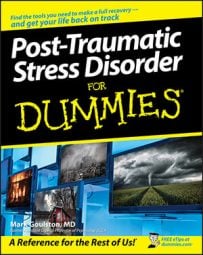Medications prescribed to help to manage symptoms of Post-Traumatic Stress Disorder (PTSD) work to differing degrees among patients. Here are some of the ways you can tell if your doctor-ordered medicine is relieving common signs of PTSD:
You begin to fall asleep more easily and begin to sleep through the night (if sleep has been a problem for you).
You start to get your appetite back.
You find it easier to do the daily activities that you didn’t have the energy or motivation to do before.
You look forward to each day instead of dreading it, and you feel more hopeful.
You start wanting to be around people instead of wanting to avoid them.
You’re able to bounce back from little annoyances instead of crumbling when they happen.
You’re less jumpy when you hear loud noises.
You can handle being in situations that used to freak you out.
While you’re looking for the positive effects of your medication, you also need to take notice of any negative reactions, such as a poor interaction with another med you’re taking. The med might not be working for you at all, or the dosage may require adjustment to deliver better results.
If your sleeping, eating, or mood doesn’t improve at all after you’ve taken an adequate dosage for a period of ten days to two weeks, you may need a higher dosage or another med.
Non-psychiatric doctors are often hesitant to prescribe the necessary amount, because psychiatric meds aren’t their specialty. So if you think you may need a higher dosage, consult a psychiatrist.
If you feel one or more of the many nonspecific side effects listed in your medication’s instructions for more than three days, you may need a lower dosage or another drug.
If you have abnormal laboratory tests — such as blood count abnormalities, liver function tests, or a kidney function test — you probably need another medication.
If you develop allergic reactions, such as skin conditions or difficulty breathing, you probably need a different med.
If several professionals are treating your PTSD, other mental disorders, and/or substance abuse issues, be sure that each professional knows about every medication you’re taking.

